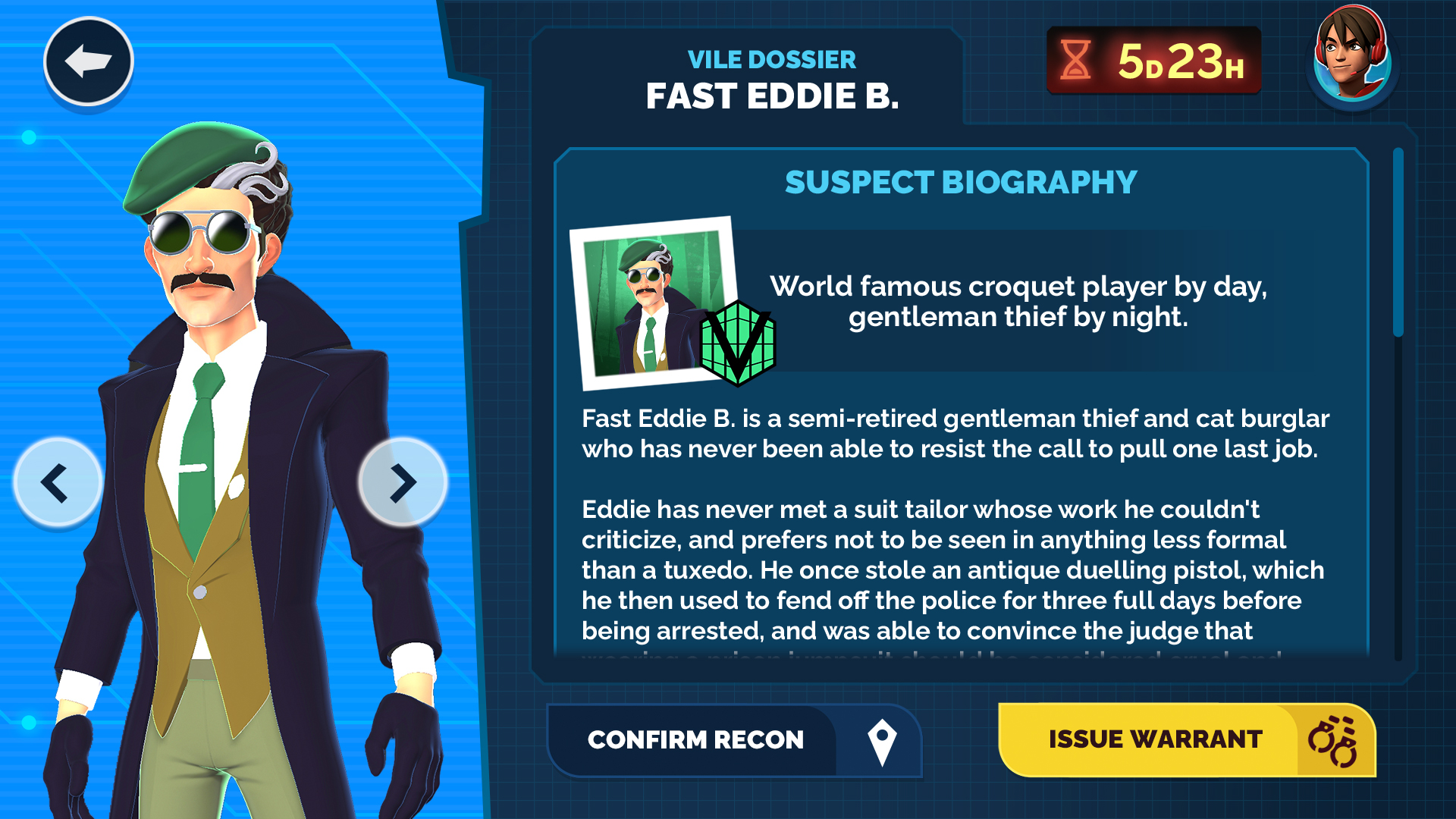
When it comes to educational video games, the Carmen Sandiego franchise is a benchmark. The original computer game, Where in the World is Carmen Sandiego?, came out in 1985 and has gotten tens of sequels and spinoffs since. In 2025, the first new franchise installment in 10 years, simply titled Carmen Sandiego, will hit store shelves (or, perhaps more accurately, public library shelves). Polygon’s early playthrough of a few hours of the game showed it was not just for fans of the franchise — the game is also profoundly educational, which is refreshing in the age of overstimulating and hastily created content for children. Carmen Sandiego also looks to be an excellent, kid-friendly crash course in how to play video games.
In the new puzzle-adventure game, Carmen Sandiego is a spy working case-by-case to take down a malicious thieving group called V.I.L.E. (just as she does in her Netflix TV show adaptation). As Carmen, the player visits locations around the world to uncover clues about suspects, chase down V.I.L.E. operatives, and ultimately issue a warrant to arrest the key perpetrator.

The educational elements are woven into the game mechanics, so you can’t help but learn facts about the countries you’re visiting. For example, a witness who saw the thief may give you a few pieces of information, like that the thief spoke about studying Mayan ruins and that they had red hair. You can use that first bit of information to select your next destination — Mexico City, in this case. Simultaneously, you use information you learn about the thieves themselves to narrow down your suspect database, marking off “red hair” as “yes,” for example.

The learning doesn’t just come in the form of static facts; Carmen Sandiego is designed in such a way as to encourage players to pay attention and absorb the full picture. There’ll always be kids (and players in general) who want to skip all the dialogue and text and focus only on interactive gameplay mechanics. But in this case, you’ll fail quickly at your missions if you don’t do that reading, so the incentive to take in the facts and make informed decisions is high — and fun gameplay mechanics are still sprinkled in heavily throughout. In this way, Carmen Sandiego also successfully teaches the player how to play different kinds of video games in general; you’ll control Carmen first-person in one minigame, then solve a tangled-wires puzzle in the next. You’ll find yourself jotting down quick math problems to determine how much time you have left to solve the case if you take one more 10-hour flight across the world. You’ll sit idle for a few moments at your computer, determining whether to chase a suspected thief or to simply pickpocket them instead.
The game isn’t overly easy, and with no voice reads, it’s likely only a good fit for strong readers or kids who play games with adults who can read. There are some quirks that make me think it’d make a good fit in a classroom, where a teacher can help students search for clues online (like, What country is Nara Park in?) and define tough vocab (like “southpaw” for left-handed). But based on this preview, Carmen Sandiego looks like it will be a near-perfect new addition to the franchise, and more importantly, a near-perfect game for kids who like to learn.
The game isn’t sanitized, nor is it a watered-down version of the original — in short, it isn’t trying too hard to appeal to the youngest members of its audience, though I think they’ll like it. It’s a Carmen Sandiego game through and through, which means it’s genuine fun and subtly educational. I, an adult with no children, will probably spend several more hours with it just for fun — but if I did have kids, I feel confident it’d be a killer first RPG/puzzle game for them.
Carmen Sandiego will be released in Q1 2025 on PC, PS5, Xbox Series X, and Nintendo Switch. This preview was played on PC using a pre-release download code provided by Gameloft and HarperCollins Productions. Vox Media has affiliate partnerships. These do not influence editorial content, though Vox Media may earn commissions for products purchased via affiliate links. You can find additional information about Polygon’s ethics policy here.
